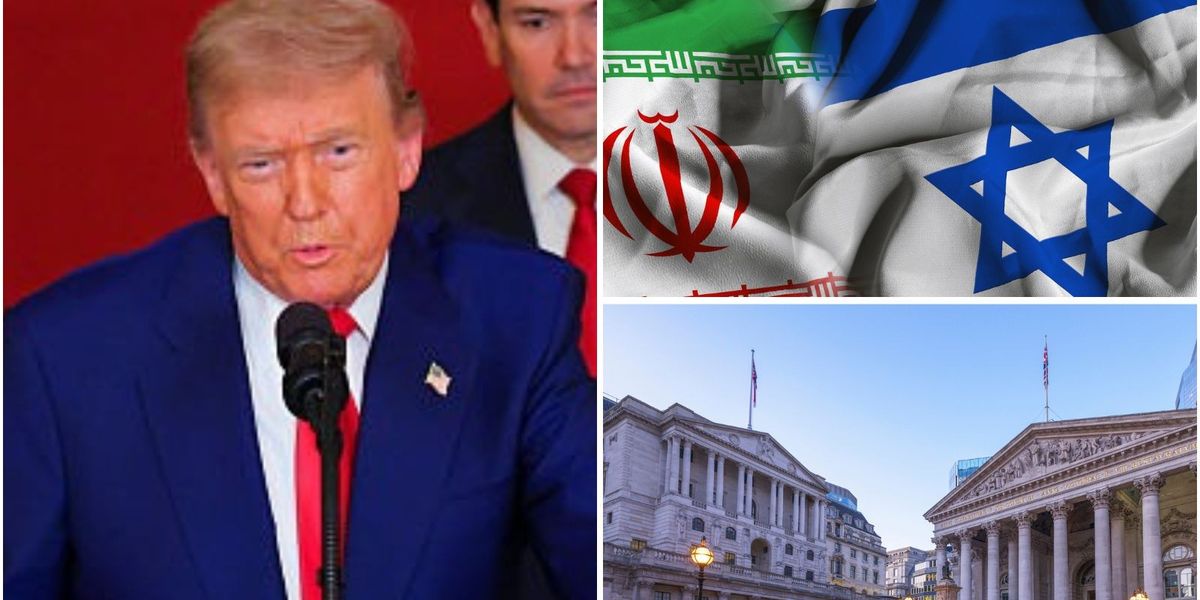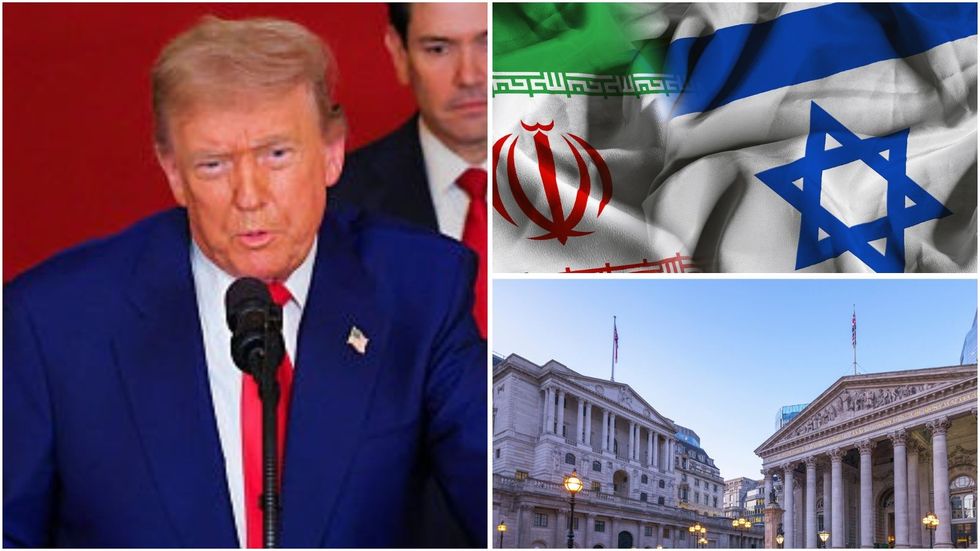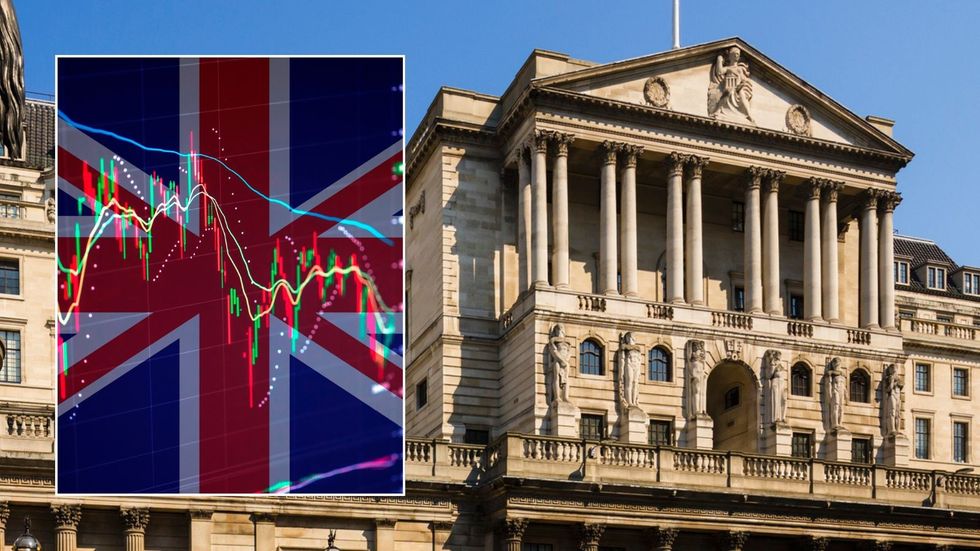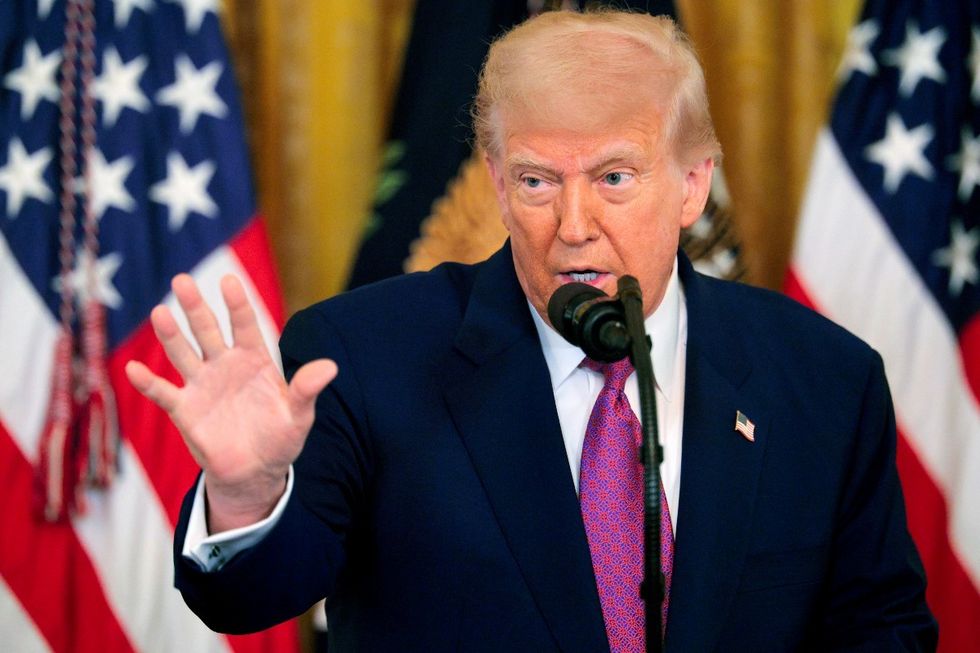



Investors in the UK and US face a period of "uncertainty" as sticky inflation and high interest rates continue to persistent amid the backdrop of the Iran-Israel war.
Overnight, President Donald Trump gave the green light to the airstrikes of there Iranian nuclear sites in a major escalation of the conflict in the Middle East.
The comes after major central banks across the globe maintained their current interest rate levels this week as policymakers grappled with mounting economic uncertainties and geopolitical tensions.
Earlier this week, the US Federal Reserve, Bank of England and Bank of Japan all opted to keep rates unchanged, reflecting caution amid concerns about tariffs, Middle East conflict and economic activity.

The global economy will face a period of "uncertainty", experts claim
GETTY
The Federal Open Market Committee (FOMC0 voted unanimously to hold the benchmark federal funds rate between 4.25 per cent and 4.5 per cent, where it has remained since the start of the year.
Meanwhile, the Bank of England's Monetary Policy Committee voted to maintain rates, whilst the Bank of Japan kept its benchmark policy rate at 0.5 per cent.
Financial markets responded poorly to the central banks' decisions, with investors expressing concern over the lack of clear direction from policymakers.
"Whilst the decisions by central bankers in the UK and US in the last 24 hours came as no real surprise to anyone, global markets have been downbeat today as they try and price in the 'unpredictability' Andrew Bailey referred to when it came to the Bank of England's base rate hold," said AJ Bell head of financial analysis Danni Hewson.
 Interest rate have been cut by the Bank of England, impacting mortgage deals on offer GETTY
Interest rate have been cut by the Bank of England, impacting mortgage deals on offer GETTY
The combination of global trade difficulties, geopolitical uncertainty and what Hewson described as "a US president who's turned unpredictability into an art form" has created a particularly challenging environment for investors.
Notably, the Bank of England's decision proved more contentious than anticipated, with six of the nine MPC members voting to leave rates unchanged whilst three favoured an immediate quarter-point reduction.
Economists had expected a seven-two split, making the actual vote closer than predicted. Market expectations for an August rate cut have been trimmed to just over 50 per cent.
The Federal Reserve's outlook showed increasing division, with seven policymakers indicating they see no reduction this year, up from four at the March meeting.

Donald Trump have the green light for the US military to airstrike three Iranian nuclear sites
GETTYDespite this, the median forecast from the US central bank's officials still showed two interest-rate cuts by the end of the year.
Rising oil prices have added to market concerns, with petroleum giants BP and Shell advancing whilst airlines including British Airways owner IAG and EasyJet declined on fuel cost worries.
"It's hard to say which forces will exert the greatest pressure by the time the MPC sits around the table in August, whether it be a rising oil price which is likely to stoke inflation or the loosening jobs market," Hewson noted.
Further complicating the outlook, the UN nuclear watchdog reported that Iran's near-bomb-grade uranium stockpile cannot currently be verified due to Israel's ongoing military assault preventing inspections.
